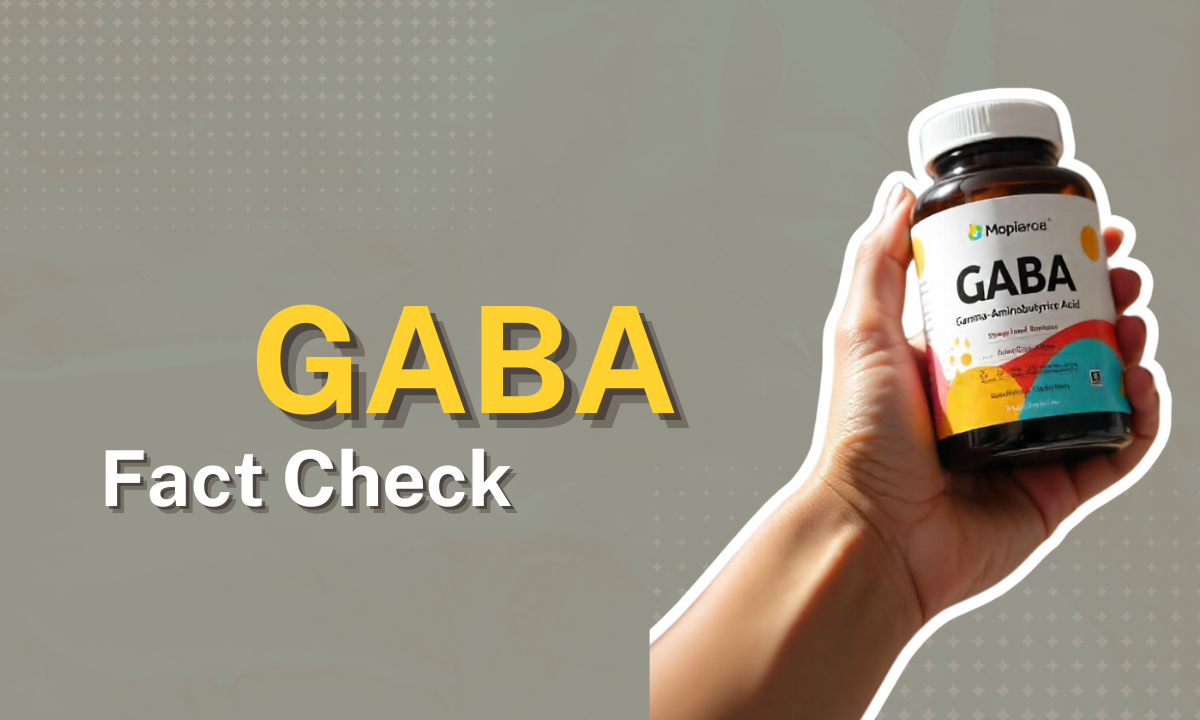What is it?
Gamma-aminobutyric acid (GABA) is the major inhibitory neurotransmitter in the central nervous system. It fulfils a number of functions in the brain and also affects tissues outside the brain.
The few foods that contain GABA are fermented ones, such as kimchi, miso, tempeh, tea, tomato, soybean and germinated rice.
This supplement has become popular for it’s calming effects, so let’s find out what the studies say!
Functions & Benefits
It regulates many depressive and sedative actions and is critical for relaxation. Consequently, several drugs that resemble the structure of GABA (e.g., gabapentin, and pregabalin) have been developed to treat seizures and convulsions. It is also involved in the neural regulation of visual tasks and emotion processing.
A few small studies have found:
- Improvements in sleep quality, markers of stress and visual attention,
- Reduction in blood pressure and cortisol,
- Improved mood during stressful tasks and heart rate variability.
A single dose of GABA (1 gram) taken orally has been shown to blunt the rise in core temperature at rest and during exercise in the heat, but it remains to be studied whether this effect can actually help improve exercise performance in the heat.
One resistance training intervention found that daily supplementation with whey protein (10 grams per day) and GABA (100 milligrams per day) increased lean mass more than whey protein alone, but muscle strength was not affected. Further studies are needed to confirm this finding.
In the few human studies that exist, a single oral dose of GABA (3–5 grams) was found to increase circulating growth hormone concentrations at rest and in response to resistance exercise. However, the growth hormone-increasing effects reduce with daily use.
Dosage & Timing
Oral GABA does not appear to reach the brain in appreciable amounts, meaning oral supplementation can’t be assumed to exactly replicate the effects of GABA as a neurotransmitter.
A dose of 75-300 mg 30 minutes to an hour before bedtime appears to be effective. Reference. It is unsure currently if this is the optimal dosage. Reference.
Safety
Oral supplementation with GABA appears to be fairly safe with no evidence of toxicity in animal studies or serious side effects in human studies.
However, abdominal discomfort, headache, and drowsiness has been documented.
Takeaway
In general, there is limited human research on oral supplementation with GABA.
It may be worth a shot as a non-habit forming sleep/relaxing aid but not for treating medical conditions. Reference.
It may make you drowsy so caution must be observed with dosage and timing.
Other practices like good sleep hygiene, meditation and physical activity must be optimised simultaneously while considering supplements for sleep and relaxation.
Speak with your doctor and/or dietitian if you are taking other medications before you add GABA to your stack.
~ Shwetha Bhatia, Registered Dietitian (Indian Dietetic Association)





